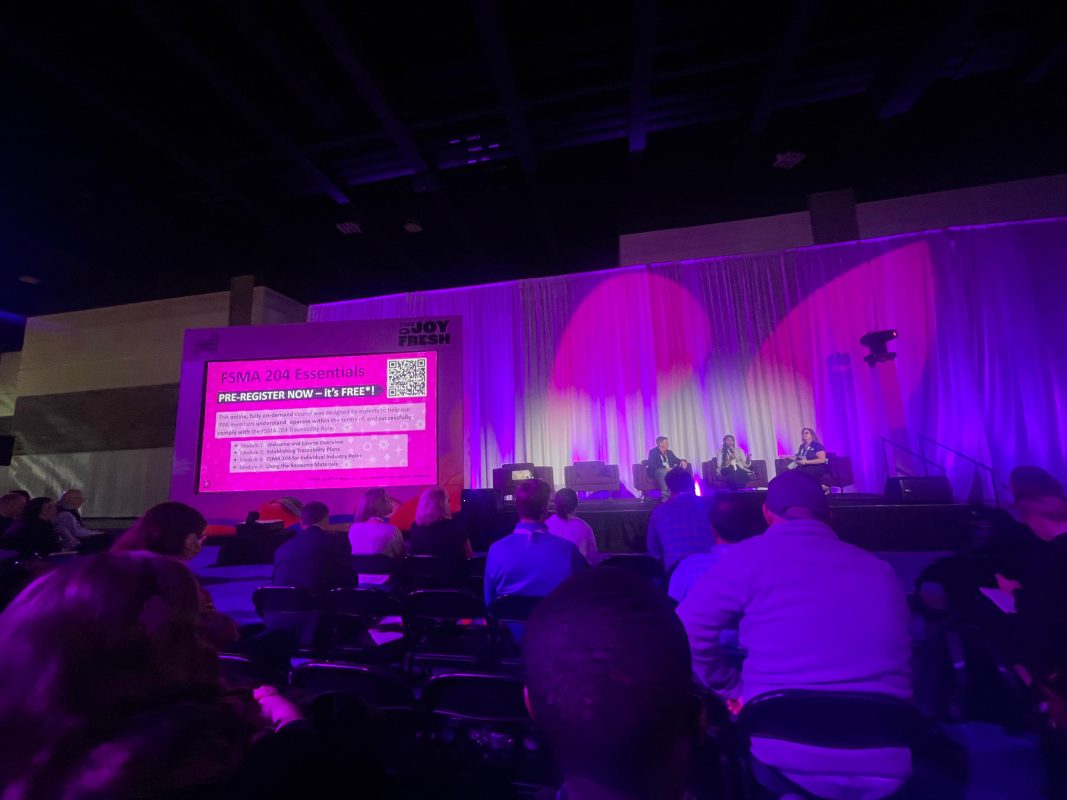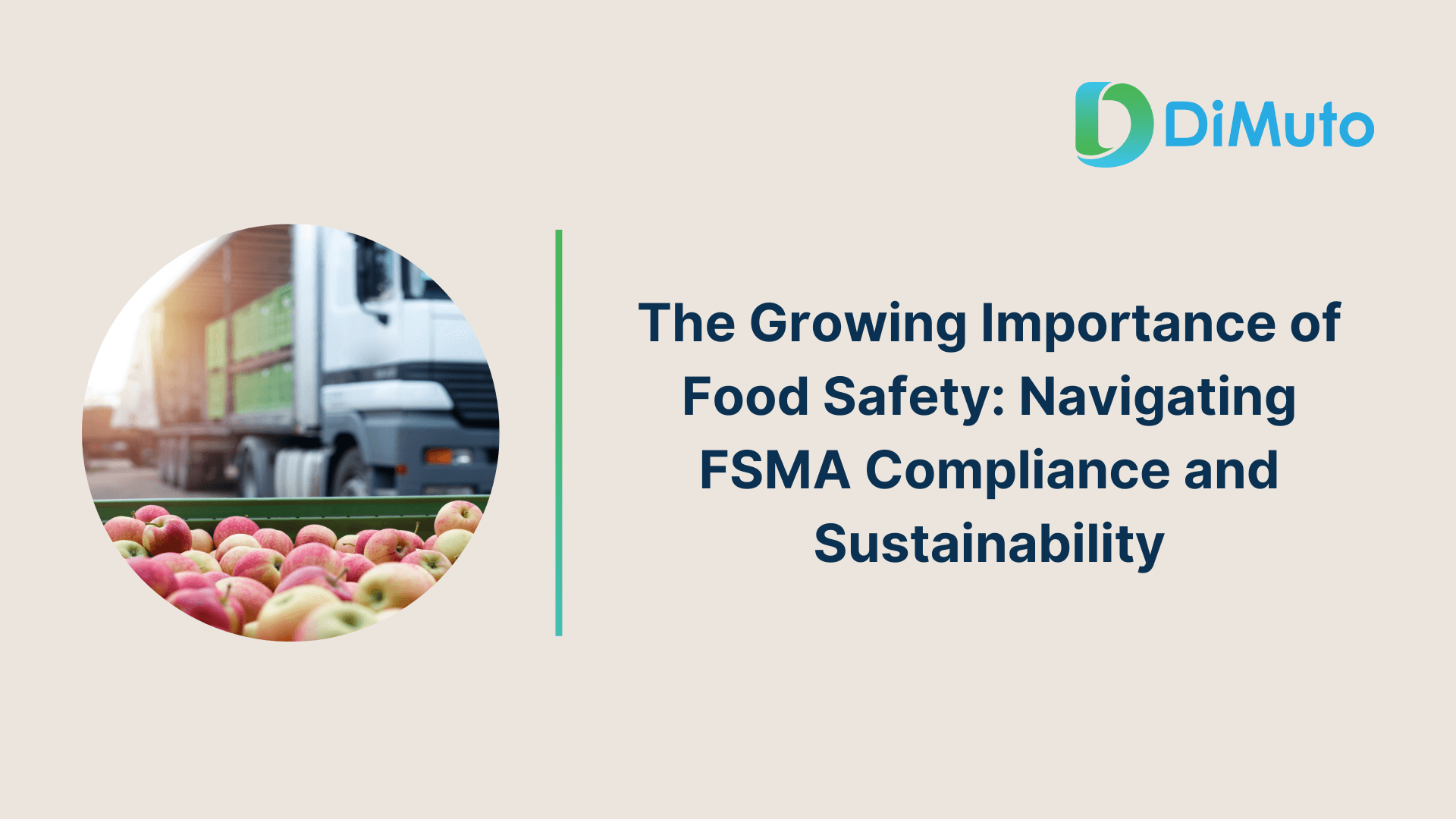by Rubén Tapia, Managing Director of the Americas at DiMuto
In today’s food industry, safety has taken on new urgency—and it’s clear why. As someone involved in the global trade of fresh produce and food products, I’ve come to realize just how critical transparency is. According to a 2024 CDC report, approximately 48 million people in the U.S. are affected by foodborne illnesses each year. That’s a staggering number—48 million people facing serious health risks.
This data highlights the need for more transparency and accountability in our food supply chains. Ensuring that the food on our tables is safe isn’t just a regulatory requirement—it’s about trust and responsibility. But we know this is easier said than done.
The New Challenge: FSMA Rule 204

FSMA Forum at IFPA 2024
The upcoming FSMA Food Safety Modernization Act Rule 204, set to roll out in 2026, is a major shift for the industry. This new rule requires enhanced traceability across the food supply chain to ensure that if something goes wrong, it can be identified and addressed quickly. However, the reality is that the supply chain is vast and complex. From growers in one country to retailers in another, each step can feel like a different world, with its own set of systems, processes, and challenges.
The real question is, how do we connect the dots? Compliance is a great goal, but the fragmentation in the supply chain makes achieving that level of traceability a significant challenge.
Each link in the chain—from the farmer to the logistics provider, to the distributor, and finally to the retailer—often operates with different systems and technologies. There is no universal approach to managing food safety data, which makes it challenging to quickly trace the source of an issue when something goes wrong. This complexity is further compounded by the fact that the United States imports about 15% of its overall food supply from over 200 regions and territories. With such a vast and diverse network of suppliers, tracking and ensuring the safety of every product becomes a monumental task.
Fragmentation doesn’t just occur geographically. The global nature of the food supply chain introduces layers of complexity in regulatory frameworks, operational standards, and communication protocols. A grower in Latin America may be following a different set of guidelines compared to a distributor in Asia or a retailer in the United States. Even within the same region, stakeholders may be using incompatible technologies, data formats, or processes. This lack of harmonization can lead to delays in communication and complicates efforts to trace products back to their origins in the event of a safety breach.
Moreover, smaller suppliers may not have the resources to implement sophisticated traceability systems, adding further complexity. This creates a two-tier system where larger players may comply with higher standards, while smaller entities struggle to keep up. Without seamless integration of these various components, food safety risks can escalate and remain unresolved for longer periods.
A Path Forward: Technology and Real-Time Visibility
Addressing these challenges requires collaboration and innovative solutions. By fostering real-time visibility and open communication among supply chain participants, we can work towards bridging the gaps that often lead to lapses in accountability. At DiMuto, we believe that integrating technology can simplify this process, allowing for seamless data sharing between growers, suppliers, and retailers. This not only helps meet FSMA requirements but also enhances the safety and quality of our food. Digital solutions, like the ones we’ve developed, have the power to make compliance not only achievable but seamless.
Food Safety as a Catalyst for Sustainability
While food safety is often viewed through the lens of compliance, there’s a bigger picture here. Addressing food safety can also drive more sustainable practices. The more transparent and accountable the supply chain becomes, the better positioned we are to reduce waste, optimize resources, and create a more sustainable food system. It’s a win-win for everyone.
This is something I’m particularly passionate about. As we work toward better food safety standards, we’re also building a foundation for a more sustainable future—one where compliance and sustainability go hand in hand.
The Road Ahead: Collaboration and Connection

From left to right: Ruben Tapia, LATAM Head of Corporate Development and Miguel Giraldo, LATAM Operations Director
I’m excited about the opportunities ahead to engage with industry leaders who share this vision. Events like the upcoming SWIPE and FEINJAL provide platforms to connect with others who are equally focused on transforming the way we approach food safety and sustainability. At the recent IFPA Global Show, it was clear that the conversation is shifting. More people are starting to view compliance not as a burden, but as an opportunity to innovate and build stronger, more resilient supply chains.
The road ahead is filled with challenges, but it’s also filled with promise. At DiMuto, we’re committed to being a part of this transformative journey, leveraging our solutions to foster collaboration and drive the change needed for a safer, more sustainable food system for everyone. By working together, we can create a food industry that not only meets the growing demands for safety and transparency but also supports a more sustainable, responsible future.


